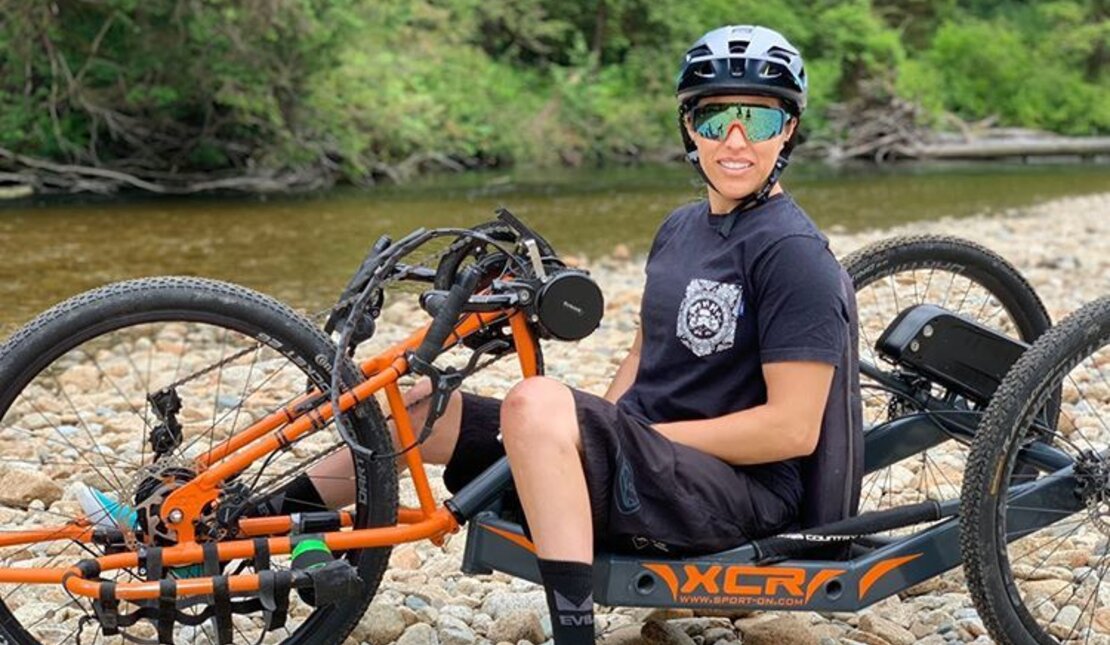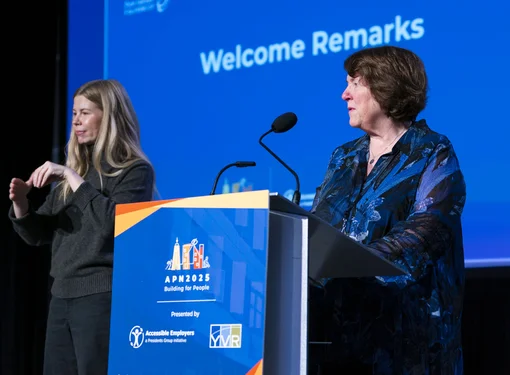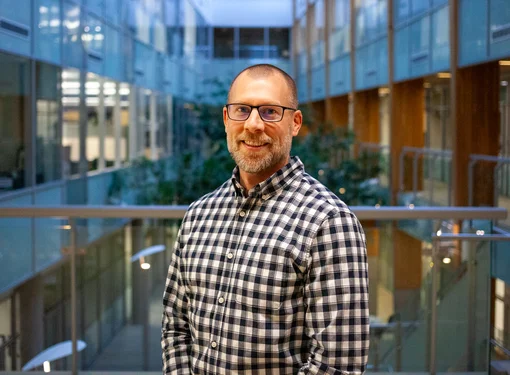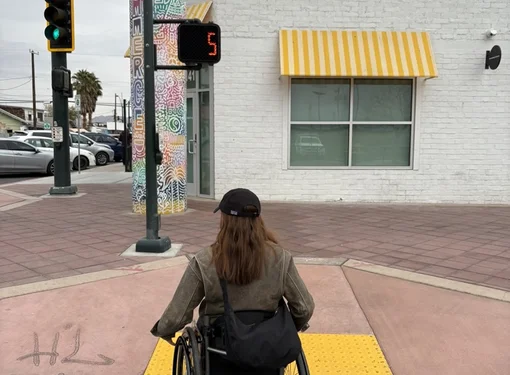Tara Llanes: Champion on the Court and for Accessibility
Achieving success at the highest level of competition is a significant accomplishment for any athlete. And excelling in multiple sports is a feat few can claim.
Tara Llanes (pronounced yawness) has done just that. It hasn’t been easy – elite sports demand rigorous training, fierce competitive spirit, and resilience to power through setbacks. These challenges are magnified in extreme sports, where injuries are common. It’s precisely this toughness that sets apart the true champions.
The injury that changed Tara’s life happened in 2007. She crashed at the Jeep KOM mountain bike finals in Vail, Colorado. She sustained a spinal cord injury in what was supposed to be her second-to-last mountain bike race of her professional career, eyeing retirement after a successful 13 years. She’d been racing bikes since she was a kid, first on the BMX track in California which propelled her into mountain biking where she won a gold, two silvers, and a bronze medal for the United States at the X Games (she is so well-regarded that she was nominated for the sport’s hall of fame in 2018).
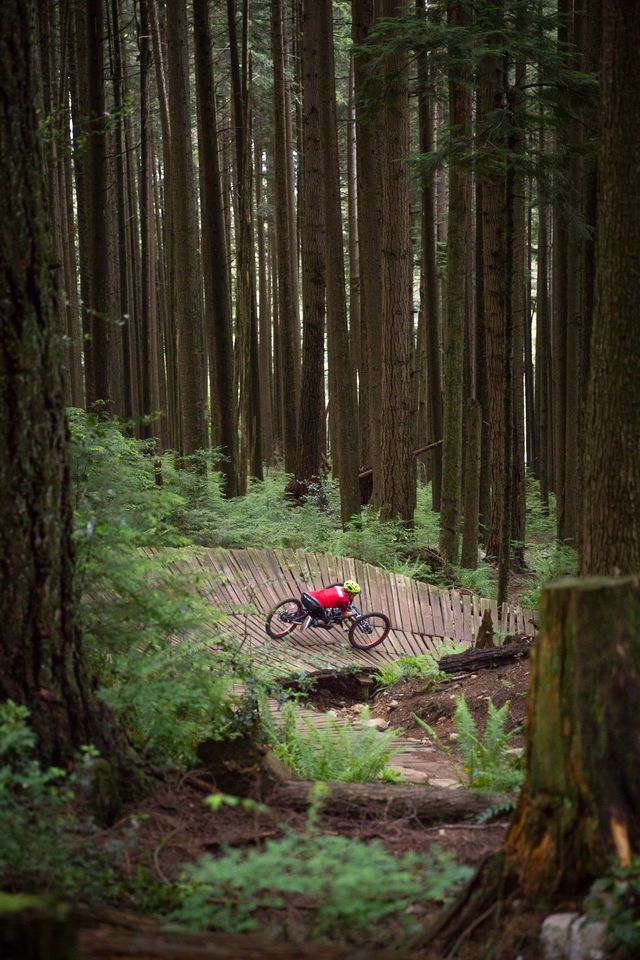
Turning the Page
After rehabilitation, Tara moved to North Vancouver, British Columbia in 2009. It was a new country, a new way of living, and a life without sports. She struggled. It brought a new meaning to digging deep.
Tara’s former partner arranged for her to have a wheelchair tennis lesson. And the sports bug bit hard. Tara made the Canadian national tennis team. She was then encouraged by former Team Canada players Amanda Yan and Richard Peter to give wheelchair basketball a shot. It didn’t take long until she was hooked.
Tara connected with wheelchair basketball, the camaraderie that comes from team sports. The game wasn’t unfamiliar territory; Tara had offers to play college basketball in the states. The rest, as they say, is history. Tara helped the Canadian national women’s wheelchair team to a gold medal at the 2019 Parapan American Games in Lima. She made her Paralympic debut at Tokyo 2020 and competed at her second world championships in 2023. Next up is the 2024 Paris Paralympics in France, Aug. 24 – Sept. 8.
“I just love to compete. And I really love working hard and pushing myself, seeing how far I can go and what I am physically capable of,” said Tara.
Going Places, Encountering Barriers
This writer had the opportunity to chat with Tara in person, with a long flight of steps in view.
“I’m not someone who backs away from challenges, not at all,” said Tara. “But if I saw something like these steps every day, I would just leave. Mount Kilimanjaro – a near impossibility. And they are just one of the many barriers I continuously encounter when I’m out and about.”
Our communities are built for the human default, which, according to many researchers, the able-bodied male between the ages of 18 to 55. This scale is encoded into construction of so many buildings and sites. It doesn’t make a lot of sense, especially considering 1 in 4 Canadians has a disability – a figure that’s expected to grow in tandem with our aging population.
Excluding a significant portion of our population from the places where we live, work, learn, and play, means we miss out on both social and economic opportunities. People with disabilities enrich societies, contributing their unique perspectives and talents. And, along with their families and friends, they control an estimated $538.5B in disposable income in Canada. Contrast that stat with this one: up to 80% of Canadians with disabilities report negative customer experiences.
Tara can relate.
“I don’t even try to go to concerts anymore. There’s hardly any accessible seating in these large arenas. There’s also the issue of accessible seating being bought by people who maybe don’t need them – there’s no regulation or system in place that works. It’s just too stressful and I don’t understand why because my money is just as green as yours.”
This is why Tara feels the work of the Rick Hansen Foundation to make the world a more accessible place is critical. Eight million Canadians with disabilities experience the emotional toll of constantly being reminded that some spaces are off-limits simply because they’re not designed with inclusivity in mind.
“It’s really important to continue to raise awareness and bring visibility to the issue of access,” she said.
“When there are obstacles to getting places, people stay away. Even if there’s just one step in my way to getting to a theatre or something, I’m not even going to entertain the idea of going. I’m not even going to try because it’s going to be stressful. Rick Hansen and the Foundation have the influence to bring this issue to light, and this will make so many lives so much better.”
Join Tara in championing accessibility today. Your support of RHF will help create an inclusive and accessible country for people of all ages and abilities. Donate today!
